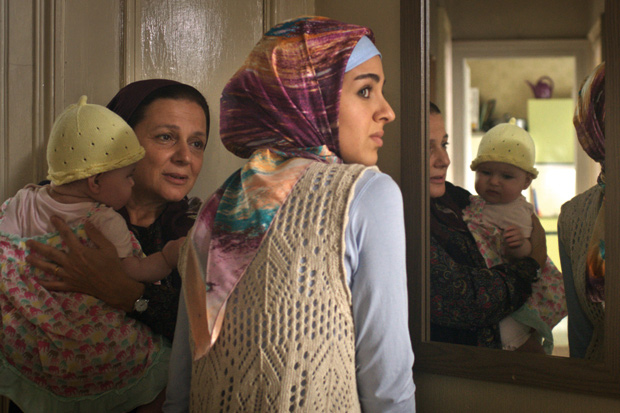Mid-August is a hopeless time for films; so hopeless, useless and bleak, if I don’t use three words when one would have done, I am just never going to fill up this space. The assumption is people don’t wish to visit the cinema on summer evenings, or they are on holiday (I wish!), so the studios put out all their rubbish. This week sees the opening of Bachelorette (a Bridesmaids rip-off), Planes (a Disney film, originally intended for DVD only) and The Lone Ranger, which is said to be so lousy, terrible and awful the producer is going to be hung from a lamppost on Sunset Boulevard, as a warning to all other Hollywood producers. However, on a happier note, which is also cheerier and merrier, there is always the occasional foreign-language gem, twinkling all the brighter, and so we have Kuma.
Kuma is an Austrian-Turkish project, which, at its most basic level, is one of those films that offers a fascinating glimpse into the everyday lives of those of whom we have little or no knowledge. Separation did this with Iranian daily life, and Wajda did this with Saudi Arabian daily life, and if you are as interested as I am in what such people eat for breakfast, or what’s available in the local grocery store, or how the women behave in private, once they are no longer so constrained, you will be with it from the start, as I was. But it’s not just that. It also tells a supremely clever and involving story. Which is also moving. (Nearly left it at two words there, when three could have done! I’m losing my touch!)
It opens in Turkey, at a wedding in a small, dusty Anatolian village. It is all colour and clamour and music and dancing as 19-year-old, sweet, dark-eyed Ayse (Begüm Akkaya) marries young, handsome Hasan, son of the formidable Fatma (Nihal G. Koldas), who lives in Vienna with her husband, Mustafa, and five of their six children. (The oldest son works in Germany.) Or at least we think Ayse has married Hasan. Once the family has speedily returned to Vienna, it is revealed the marriage was a scam, to fool the German authorities who do not allow polygamy. Ayse has actually been married off to Mustafa. She is to be his ‘Kuma’, his second wife. This was all arranged by Fatma, who has cancer, believes she is dying, and wishes to put someone in place to look after the family once she is gone, dead, deceased.
We only realise what’s happened on the wedding night, when the bed has been made up, and it’s not Hasan who comes into the room, but little balding Mustafa. (He’s a sweetie, actually, but even so.) It’s a neat plot twist, which I can tell you about, as it happens so early on, but the further plot twists, of which there are a few? My lips are sealed. Shut. Closed.
The first half of the film is quiet and docile, quite like Ayse herself, and also shut-in. It is directed by Umut Dag; once his camera leaves Turkey everything has a small-roomed, suffocated, claustrophobic feel. And there are very few locations: their apartment, the hospital, the local grocery store (hurrah!).The combined effect makes it feel somewhat leaden and plodding but, in retrospect, I can now see it gives the film space to establish all the family members individually: the daughter who is being beaten by her husband; the daughter who so resents Ayse she can’t be civil; poor Hasan, who has his own particular secret.
Ayse slowly begins to feel her way around, picking up a few German words, and shopping at the store, which is Turkish-run and where, interestingly, and satisfyingly, there appears to be a pudding on sale called ‘Pudding’. She does what she has to do with Mustafa, as the rest of the family lie in their own beds, listening to the springs squeaking. But then something happens, something so unexpected and explosive everyone is sent rocketing. Alas, I can’t tell you what it is because my lips are sealed, shut and closed. Remember?
It is beautifully acted, with Akkaya allowing every emotion to flit across Ayse’s lovely face in the most natural way, while Koldas (who is, apparently, a famous theatre actress in Turkey) is superb as a woman who, when it comes down to it, and whatever previous kindnesses she may have shown, feels compelled to uphold the family’s tight-knit traditions in the face of a different culture. This film would, now I think about it, shine bright at any time of year. That is, in February, March or April, too.






Comments